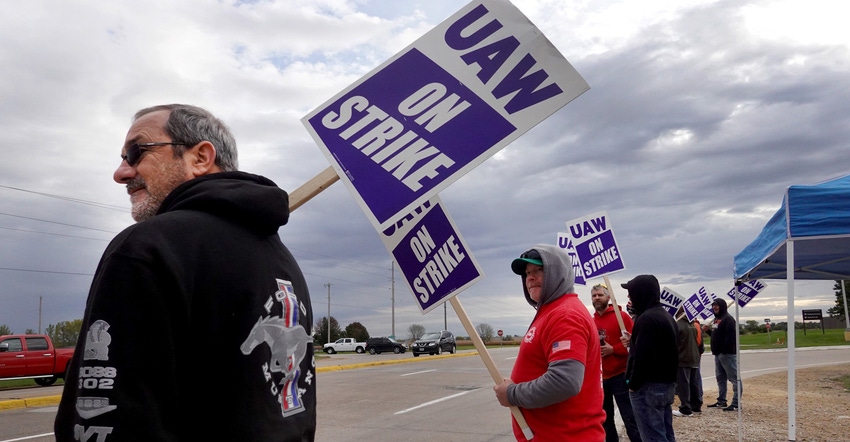
By Joe Deaux and Alvaro Ledgard
Deere & Co. and the United Auto Workers representing some 10,000 striking workers will return to the bargaining table Thursday, according to people familiar with the matter.
It’s the first time the two sides have met in more than a week, after union members rejected in a 55% to 45% vote a tentative agreement that would have increased wages by 10% in the first year of a six year contract and included a $8,500 signing bonus for every worker. Conversations have been ongoing, but this is the first formal sitdown to negotiate the next steps in reaching a ratified deal, one of the people said.
It’s unclear what details will be under discussion at the meeting in the Quad Cities area of Iowa and Illinois, according to the people, who asked not to be named because the information isn’t public. The meeting comes as the strike causes weeks-long delays for parts and component orders U.S. farmers need to keep combines running in the busiest season of the year.
See more: Deere workers reject agreement, extend strike
Thursday marks four full weeks since workers began to strike, which has been bad news for farmers who depend on the company during the harvest season and already have been battling slowdowns due to the global supply chain crisis. The world’s biggest farm-equipment maker took a hard line after the tentative agreement was rejected, saying the deal was their best and final offer and that they would not be returning to the bargaining table.
The second tentative agreement union members voted down last week would have also raised wages by 5% in the third and fifth years of the contract, but the existing “two-tier” compensation system remained a sticking point for workers hired since 1997, who receive less generous benefits than those who started working at Deere earlier.
Related: Ag Secretary Vilsack visits Deere workers on strike
Shares of Deere are up more than 30% this year as demand for farm equipment is at its highest in years. Deere is enjoying record profits, with projections for its full-year earnings between $5.7 billion and $6.1 billion. The company would have to raise prices on its farm equipment by about 1.5% to fully offset the $3.5 billion increase in labor costs, according to JPMorgan analysts, based on what was offered in the latest agreement.
© 2021 Bloomberg L.P.
About the Author(s)
You May Also Like




